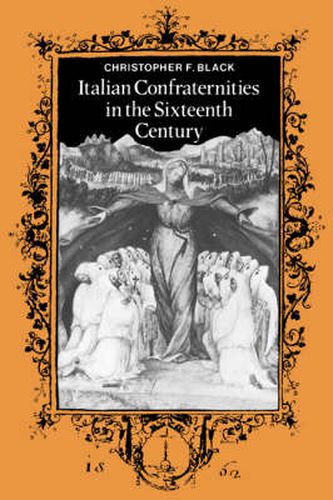Readings Newsletter
Become a Readings Member to make your shopping experience even easier.
Sign in or sign up for free!
You’re not far away from qualifying for FREE standard shipping within Australia
You’ve qualified for FREE standard shipping within Australia
The cart is loading…






Confraternities were - and are - religious brotherhoods for lay people to promote their religious life in common. Though designed to prepare for the afterlife, they were fully involved in the social, political and cultural life of the community and could affect all men and women, as members or as the recipients of charity. Confraternities organised a great range of devotional, cultural and indeed artistic activities in addition to other functions such as the provision of dowries and the escort of condemned men to the scaffold. Other works have studied the local activities of specific confraternities, but this is the first to attempt a broad survey of such organisations across the breadth of early modern Italy. Christopher Black demonstrates clearly the extent, diversity and influence of confraternal behaviour, and shows how such brotherhoods adapted to the religious and social crises of the sixteenth century - thus illuminating current debates about Catholic Reform, the Counter-Reformation, poverty, philanthropy and social control.
$9.00 standard shipping within Australia
FREE standard shipping within Australia for orders over $100.00
Express & International shipping calculated at checkout
Confraternities were - and are - religious brotherhoods for lay people to promote their religious life in common. Though designed to prepare for the afterlife, they were fully involved in the social, political and cultural life of the community and could affect all men and women, as members or as the recipients of charity. Confraternities organised a great range of devotional, cultural and indeed artistic activities in addition to other functions such as the provision of dowries and the escort of condemned men to the scaffold. Other works have studied the local activities of specific confraternities, but this is the first to attempt a broad survey of such organisations across the breadth of early modern Italy. Christopher Black demonstrates clearly the extent, diversity and influence of confraternal behaviour, and shows how such brotherhoods adapted to the religious and social crises of the sixteenth century - thus illuminating current debates about Catholic Reform, the Counter-Reformation, poverty, philanthropy and social control.